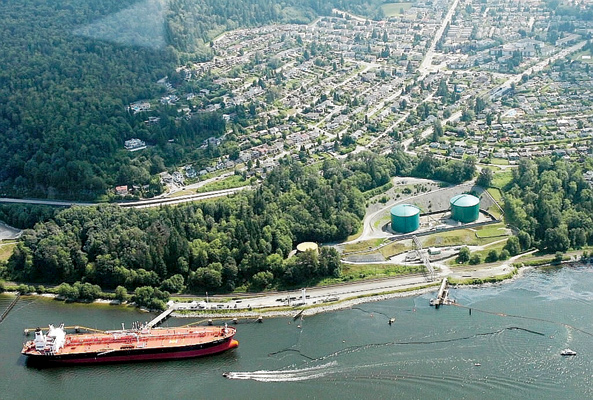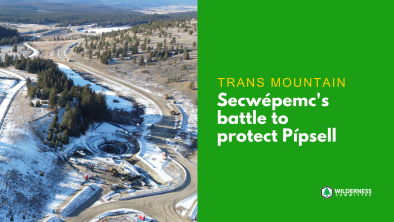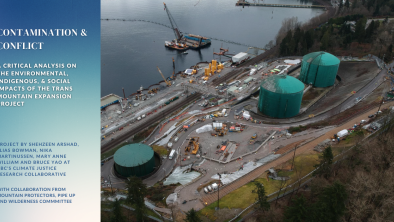NEB conditionally approves Trans Mountain pipeline expansion
Globe and Mail

The National Energy Board has conditionally recommended the $6.8-billion Trans Mountain oil pipeline expansion project, a controversial ruling praised by industry and panned by environmentalists.
The regulator said Thursday that Kinder Morgan Canada Inc.’s Trans Mountain project must meet 157 conditions. “These conditions would address issues such as safety, protection of the environment and other considerations,” the NEB said in a 533-page report. The federal cabinet, however, will make the final decision.
The board said the benefits outweigh the burdens, and therefore the expanded pipeline will be in the national public interest.
The decision comes as pipeline proposals to move oil out of Alberta remain stalled. The Trans Mountain project is seen by some industry experts as having the best chance to succeed.
“This decision is a milestone for the future of Canada,” said Tim McMillan, president of the Canadian Association of Petroleum Producers. “The NEB is sending a clear message to Canada: Building the infrastructure to get our resources to market is in the best interest of our country.”
Benefits of the venture include diversifying Canada’s energy exports, creating jobs and generating revenue for governments, the NEB report said.
They cited Trans Mountain’s estimate that the construction phase alone could add $1.2-billion to federal and provincial tax coffers.
The NEB ruled that “the effects on the interests of potentially affected aboriginal groups can be effectively minimized.”
The board recommends that the federal Liberal government approve the pipeline expansion, which would increase total capacity to 890,000 barrels a day from the current 300,000 b/d. The extra 590,000 b/d would be primarily heavy oil and destined for loading onto tankers, many bound for Asia. California and Washington State are also export destinations.
The existing oil pipeline stretches 1,150 kilometres from the Edmonton area to Burnaby, B.C. The concept is to twin the existing line in order to nearly triple capacity.
Environmentalists say greenhouse gas emissions from upstream projects are a major concern, given that most of the new shipments would originate from Alberta’s oil sands.
Environment and Climate Change Canada released its analysis on Thursday of the upstream impacts of the pipeline construction – done as part of the federal Liberal government’s stated effort to build trust in the review process. To bolster that process, Natural Resources Minister Jim Carr has appointed a three-person panel to carry on six months of consultations with First Nations and other communities along the route. Critics argue that consultation process is a mere public relations exercise that will have little bearing on the final decision.
In its climate review, Environment Canada concluded the production of crude to fill expanded pipeline would emit as much as an additional 17 million tonnes a year of carbon dioxide, nearly 10 per cent of 2014 emissions in the oil and gas sector. But the department added that the industry will already be producing enough crude to fill the pipeline by 2019, assuming it reduces the amount shipped by rail.
The controversial venture has been criticized by the Opposition New Democrats in British Columbia, the mayors of Vancouver and Burnaby, environmentalists and many First Nation leaders.
Peter McCartney of the Wilderness Committee said he is outraged by the NEB’s decision because Trans Mountain does not have a social licence to proceed. Adam Scott of Oil Change International said the project will face a wall of opposition in the months ahead.
B.C. Premier Christy Clark’s Liberal government has said its view will be based on whether certain conditions are met, notably having world-class emergency response in the event of oil spills on water or land.
“This is fantastic news for thousands of out-of-work men and women in the oil patch, who are relying on new investments in the oil sector to create well-paying, high-quality jobs,” federal Conservative natural resources critic Candice Bergen said in a statement. She added that Mr. Carr and Environment Minister Catherine McKenna have thrown up unnecessary roadblocks to the project.
The expansion calls for the installation of 987 kilometres of new pipe and the reactivation of some of the existing network.
Last August, the NEB issued 145 draft conditions, helping to formulate the 157 conditions in the new report released Thursday. Thirty-nine of the draft conditions were amended after comments from intervenors and as new conditions arose as part of the process.
Trans Mountain has indicated that it could start construction next year and potentially open the expanded line in late 2019.
In a statement late Thursday, Kinder Morgan Canada president Ian Anderson said he is pleased with the regulator's recommendation. “The decision is the culmination of a lengthy and thorough regulatory review process and considers the many thousands of hours of environmental and technical studies, scientific evidence and community engagement that have been part of this comprehensive assessment,” Mr. Anderson said. “After an initial review of the report, Trans Mountain believes the 157 conditions, many in response to input from interveners, are rigorous and appear to be achievable.”
Read the original story here
Photo: 2007 Kinder Morgan spill (WC files)


